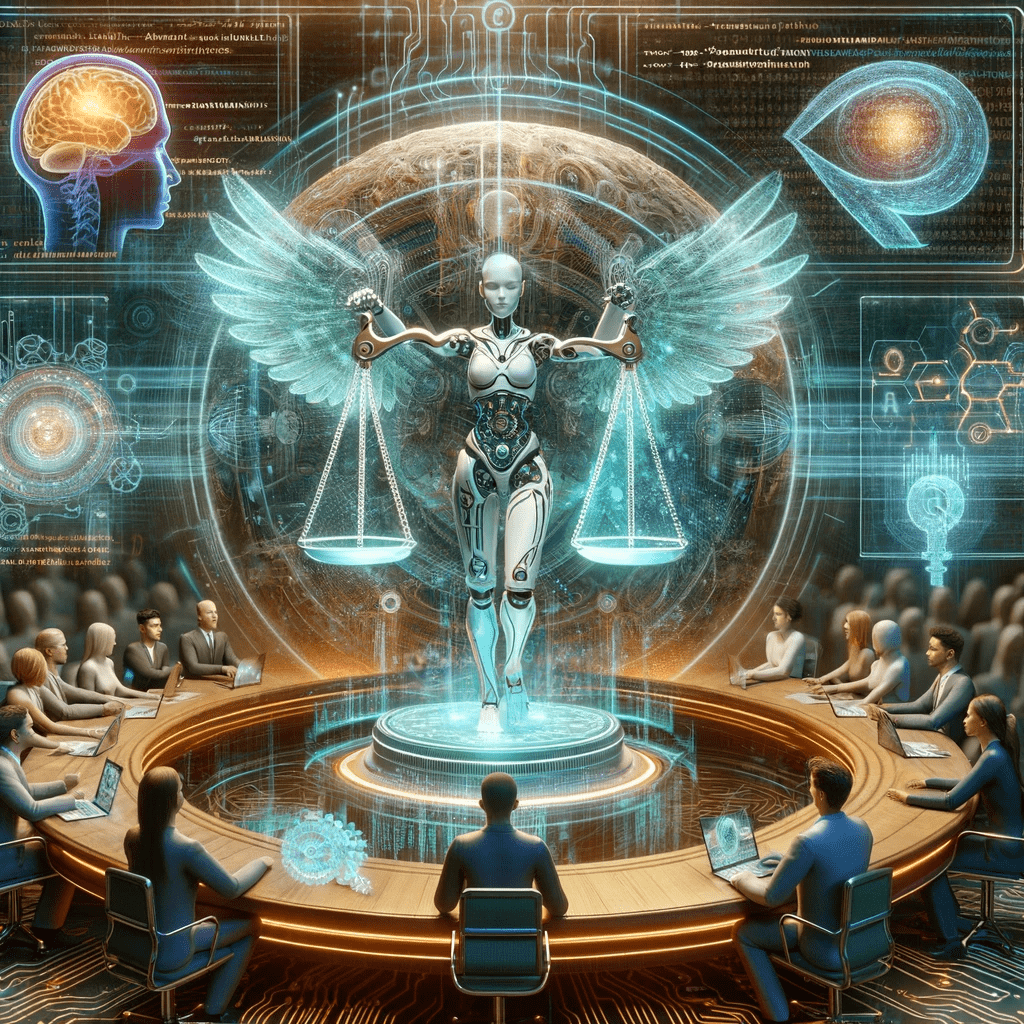
1. Fairness and bias:
AI systems can be biased, either intentionally or unintentionally, reflecting the biases of the data they are trained on or the people who design and build them. It is important to mitigate bias in AI systems to ensure that they treat all people fairly and equitably.

2. Transparency:
AI systems can be complex and opaque, making it difficult to understand how they make decisions. Transparency is important so that people can trust AI systems and hold them accountable.
3. Privacy:
AI systems often collect and process large amounts of personal data. It is important to protect people’s privacy and give them control over how their data is used.

4. Safety:
AI systems should be designed to be safe and reliable. This means considering potential risks and taking steps to mitigate them.
5. Explainability:
AI systems should be able to explain their decisions in a way that humans can understand. This is important for building trust and accountability.
6. Human Oversight:
AI systems should be subject to human oversight. This means that humans should have the ability to override AI decisions and ensure that AI systems are used responsibly.
7. Trustworthiness:
AI systems should be trustworthy. This means that they should be reliable, fair, and transparent.

8. Long-term impacts:
AI systems can have long-term impacts on society. It is important to consider these impacts and ensure that AI systems are used in a way that benefits all of society.
9. Accountability:
There should be clear lines of accountability for AI systems. This means that people should be able to identify who is responsible for the development, deployment, and use of AI systems.
10. Benefits:
AI systems should be used for good. This means that they should be used to benefit society and not to harm it.
In addition to these ten ethical considerations, several other ethical issues should be considered when using AI, such as:
- Autonomy: To what extent should AI systems be autonomous?
- Consent: When is it necessary to obtain consent from people before using AI to collect or process their data?
- Discrimination: How can we prevent AI systems from discriminating against certain groups of people?
- Employment: How will AI impact the workforce and what are the ethical implications of this?
- Weaponization: How can we prevent AI from being used to develop autonomous weapons?
These are just some of the ethical considerations that need to be considered when using AI. It is important to have a thoughtful and informed discussion about these issues to ensure that AI is used responsibly and ethically.
As we navigate the complexities of artificial intelligence, we’re reminded that it’s not just about innovation—it’s about integrity. From ensuring fairness and privacy to fostering transparency and trust, the path to ethical AI is intricate but essential. Remember, the choices we make now will define our collective future.

If you’re looking to embark on this journey with AI and want to do so responsibly, Three Birds Digital is here to guide you. Our expertise lies in aligning cutting-edge technology with the highest ethical standards. So, let’s start a conversation about how we can help you harness the power of AI while honoring the values we all hold dear. Reach out to us for more information, and together, we can lead the charge toward a more equitable, understandable, and safe technological tomorrow.



